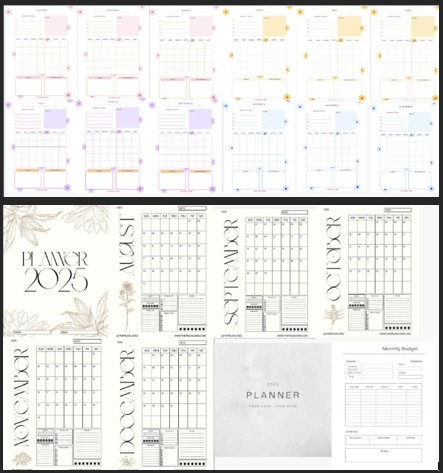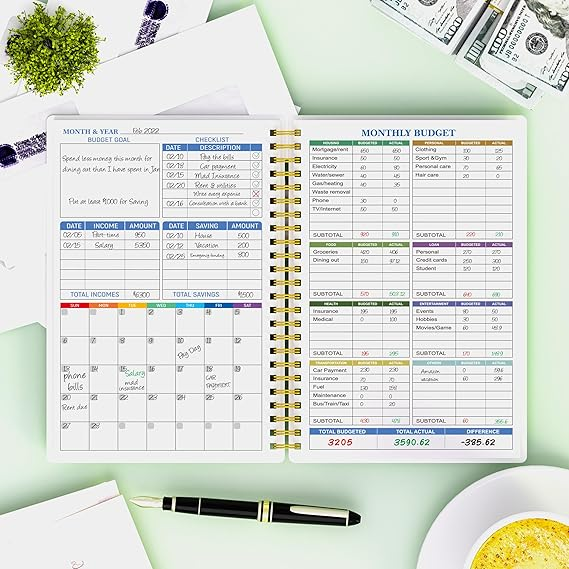Saving money doesn’t mean you have to cut out everything you love. It’s more about choosing what matters to you, then letting go of things that aren’t worth it. Frugal living isn’t a punishment; it’s a way to choose your priorities and enjoy what you have. I’ve watched friends stress over every dollar, thinking they had to give up coffee, dinners out, or simple pleasures. But the real shift comes with small, daily choices that add up over time (like learning to cook at home or swapping one streaming service for another). Dave Ramsey’s Baby Steps break this down into clear actions. For many, frugal living Using Dave Ramsey’s Baby Steps feel like a real plan instead of another list of financial “rules.” There’s a difference between feeling deprived and feeling in control, and I noticed that when I started following a plan, my stress about money dropped. Living with purpose and having a guide can give you back that sense of freedom and confidence—something that’s easy to forget when you’re just trying to make ends meet.
- Understanding Frugal Living: Mindset and Benefits
- Overview of Dave Ramsey’s Baby Steps
- Baby Step 1: Save $1,000 for a Starter Emergency Fund
- Baby Step 2: Pay Off All Debt (Except the House) Using the Debt Snowball
- Baby Step 3: Save 3–6 Months of Expenses for a Fully Funded Emergency Fund
- Baby Step 4: Invest 15% of Household Income for Retirement
- Baby Step 5: Save for Your Children’s College Fund
- Baby Step 6: Pay Off Your Home Early
- Baby Step 7: Build Wealth and Give
- How Frugal Living Fuels Progress Through the Baby Steps
- Common Challenges and Solutions on a Frugal Baby Steps Journey
- Sustaining Frugality and Financial Success Long-Term
Understanding Frugal Living: Mindset and Benefits
Living frugally goes beyond clutching your wallet and skipping lattes. It’s a mindset that helps you spend with purpose, make confident decisions, and enjoy the simple things in life. Instead of asking, “How can I get by with less?” frugal living says, “How can I get more value from what I already have?” People often confuse being frugal with being cheap, but there’s a big difference.
Frugal Living vs. Being Cheap
Being frugal means you look for ways to save without giving up your happiness or lowering your quality of life. You focus on what matters, skip the stuff that doesn’t, and spend where it counts.
Here’s how to spot the difference:
- Frugal people spend on what adds value. They’ll pay more for items that last or support their goals.
- Cheap people cut costs at any price. Even if it means missing out, buying low quality, or turning down fun with friends.
- Frugal living is about smart trade-offs, not just pinching pennies.
The Frugal Mindset
You don’t have to be a math whiz or a coupon queen. The frugal mindset is all about intention.
- Prioritize what you need over what looks good in the moment.
- Find satisfaction in less. It’s about feeling good with enough, not always wanting more.
- Look for creative ways to enjoy life: free hobbies, simple pleasures, and making the most of what you own.
- Think long-term. A frugal mindset favors steady progress over quick fixes.
Living with this kind of intention can shift your view on money and happiness. Small habits stack up. You learn to enjoy homemade meals, used books, or outdoor walks. The goal is a life that feels rich—not stuffed with random things that don’t really matter.
Lifestyle and Financial Benefits
Choosing frugal habits impacts more than your bank account. Let’s break down the most common rewards:
Everyday Lifestyle Perks:
- More free time because you focus less on shopping and clutter.
- Less stress from constant spending or keeping up with others.
- Simpler routines that take the pressure off.
Financial Benefits:
- Faster debt payoff thanks to lower bills and fewer useless purchases.
- Extra savings for emergencies, adventures, or future goals.
- Freedom to work less, travel more, or give more generously.
Top Benefits at a Glance:
- Less anxiety over money surprises.
- More control over your goals and priorities.
- Room in your budget for things that make you smile.
Frugal living makes life lighter, and puts you in the driver’s seat with money. It’s not about squeezing every dollar—it’s about spending with confidence and getting the life you really want.
Overview of Dave Ramsey’s Baby Steps
Dave Ramsey’s Baby Steps lay out a simple map for managing money. Each step fits into the next, guiding you from your first emergency fund all the way to growing wealth. These steps are clear, practical, and built to help anyone—even if you’re starting with debt or living paycheck to paycheck. Let’s look at each step and how they help you build a real sense of security with your money.
Baby Step 1: Save $1,000 for a Starter Emergency Fund
Before anything else, save $1,000 fast. This is your quick-start safety net for life’s little surprises. Whether it’s a flat tire or a broken water heater, this money is meant for true emergencies. It stops small problems from turning into big debt.
- Treat this as a sprint. Sell things you don’t need, cut extra expenses, and collect every spare dollar.
- Don’t worry if it feels small. You’ll build a larger fund later.
Baby Step 2: Pay Off All Debt (Except the House) Using the Debt Snowball
Once you have your starter fund, hit your debt hard—excluding your home loan. List your debts from smallest to largest, regardless of the interest rate. Pay minimums on everything but attack the smallest debt with every extra dollar.
- Clearing the smallest debt first gives you quick wins.
- Each paid-off debt means one less bill and more money for the next balance.
- This method builds motivation and momentum, making debt feel beatable.
Baby Step 3: Save 3–6 Months of Expenses for a Fully Funded Emergency Fund
Now that your non-mortgage debt is gone, it’s time to breathe easier. Build up a true safety net—enough to cover three to six months of living expenses. This fund protects you from bigger setbacks like job loss or medical bills.
- Keep this money in a savings account, separate from daily spending.
- Knowing you have savings lets you sleep better and make confident choices.
Baby Step 4: Invest 15% of Household Income for Retirement
With debt behind you and savings in place, start thinking long-term. Invest 15% of your gross household income into retirement accounts like a 401(k) or Roth IRA. Focus on building a nest egg that will let you work because you want to, not because you have to.
- Use employer matches if they’re offered—it’s free money.
- Try to automate your savings so you don’t have to think about it every month.
Baby Step 5: Save for Your Children’s College Fund
If you have kids, put money aside to help with their future education. After you’re set for retirement, open a dedicated college savings account like a 529 plan or ESAs.
- Any amount helps. The earlier you start, the more it grows.
- Saving now can keep your kids from taking on student loans later.
Baby Step 6: Pay Off Your Home Early
After investing and saving for college, apply extra income towards your mortgage. Make bigger or more frequent payments to knock out your home loan ahead of schedule. Being truly debt-free gives you a level of freedom few people ever reach.
- Paying off your home cuts your biggest expense.
- This step often takes years, but every extra payment brings you closer.
Baby Step 7: Build Wealth and Give
Once you’re debt-free and your future is secure, keep building wealth and start giving generously. Grow your investments, help your family, and support causes you care about.
- This step returns full-circle to enjoying and sharing your success.
- Giving isn’t just about money—it’s also about your time and talents.
Dave Ramsey’s Baby Steps work because they make money management simple and focused. Each step pushes you forward without feeling overwhelming, stacking small wins into big change.
How Frugal Living Fuels Progress Through the Baby Steps
Living frugally isn’t just about pinching pennies. It’s about building good habits that make each of Dave Ramsey’s Baby Steps easier and faster. When you trim the waste and focus on what matters, you free up more money for your goals—whether that’s crushing debt or stacking up cash for emergencies. Let’s look at how frugal habits can move you forward at every stage.
Baby Step 1: Turbocharge Your Starter Emergency Fund
Saving $1,000 for your starter emergency fund can feel like a mountain if you’re living paycheck to paycheck. Frugal habits help you climb fast.
- Cancel small recurring expenses (unused subscriptions, streaming services you barely watch).
- Start meal planning and cook at home to skip expensive takeout.
- Sell unused or duplicate items around your house.
Those dollars add up. When you live simply, every bit you save grows your fund in a hurry. It’s about doing what works—not just hoping for a lucky break.
Baby Step 2: Attack Debt with Every Extra Dollar
Paying off debt is all about momentum. The less you spend, the more you have to throw at your balances.
Try these frugal moves:
- Shop second-hand for things you need, instead of buying new.
- Use DIY fixes—like repairing small appliances or sewing on buttons—instead of hiring out.
- Cut out luxury expenses like daily lattes, convenience foods, or name-brand clothing.
Frugal habits aren’t about missing out—they just give you more control over where your money goes. Every choice you make to spend less speeds up your debt snowball and brings freedom closer.
Baby Step 3: Supercharge Your Emergency Fund Savings
A fully funded emergency fund can sound impossible at first. Living below your means gives you the breathing room to stash away three to six months of expenses.
- Buy pantry staples in bulk to cut your grocery bills.
- Use a cash envelope system to keep spending in check.
- Pause on upgrades or new gadgets. Stick with what works until you’ve hit your goal.
Saving big doesn’t mean living small. You gain peace of mind knowing you’re protected, and every frugal habit you build keeps your account growing.
Baby Step 4–7: Fuel Investing, Giving, and Long-Term Success
Frugal living keeps paying off, even after you’re out of the danger zone. When you cut waste, you have more to invest, save for your kids, and pay off your house.
- Automate your savings and investments to prioritize them first.
- Look for free or low-cost activities for family fun, instead of costly entertainment.
- Shop for gifts, clothes, or furniture at thrift stores and garage sales. Quality doesn’t always mean new.
By keeping your habits simple, you leave yourself more room for things you love—like traveling, supporting your favorite causes, or being generous with others. It’s not about penny-pinching forever. It’s about building a life with more choice, less worry, and real progress.
Every step in the Baby Steps plan gets easier with a frugal mindset. It’s like putting your financial plan on fast-forward—each dollar you save is a dollar closer to your goals.
Common Challenges and Solutions on a Frugal Baby Steps Journey
Trying to live frugally while working through Dave Ramsey’s Baby Steps often feels like swimming against the current. You might start with excitement, but real life hits: friends tempting you to spend, energy running low, and surprise expenses threatening your momentum. The key is knowing these bumps are normal. With the right tools, mindset, and support, you can keep going and see results faster. Let’s look at the most common hurdles and what actually helps.
Peer Pressure and Social Expectations
Family, friends, and coworkers often don’t get why you skip brunch or drive your old car another year. The pressure to “join in” can wear you down.
Try these simple moves to stay focused:
- Share your goal: Explain to close friends what you’re working on. Most people respect honesty, even if they don’t live the same way.
- Suggest lower-cost alternatives: Host a potluck instead of going out. Invite friends for coffee at home. It keeps you connected and saves money.
- Remember your ‘why’: Tape a note on your fridge or set a phone reminder for your main goal. A clear purpose helps block out the noise.
Budget Fatigue and Burnout
Frugal living is a marathon, not a sprint. Over time, saying no to every splurge wears thin. You start to wonder if it’s worth the effort.
Keep your energy up with real-world tactics:
- Plan small rewards: Set aside a little “fun money” each month. Even $10 can give you a breather without busting your budget.
- Switch it up: Look for free local events, new parks, or a new hobby that doesn’t drain your wallet.
- Track your wins: Mark every paid-off debt, no matter how small. Celebrate with something meaningful (a home spa day, favorite dessert).
Dealing with Setbacks and Unplanned Expenses
Emergencies will pop up: a car repair, a doctor visit, or even losing a job. These setbacks can hit your motivation hard.
Face financial emergencies with practical steps:
- Use your emergency fund as intended. Don’t feel guilty about dipping into it—that’s why it’s there.
- Adjust your plan. Pause big goals if needed and rebuild your savings one step at a time.
- Lean on free resources: Many communities offer food banks, utility help, and job search support if things get tough.
Feeling Alone or Unsupported
Sometimes it’s tough to talk about money struggles. When no one close to you is cheering you on, it’s easy to feel isolated or second-guess your choices.
Get support with these ideas:
- Join online groups: There are active communities (like Facebook’s “Dave Ramsey Budgeters” or Reddit’s r/Frugal) where you can share wins, ask questions, and get tips.
- Listen to real stories: Podcasts and YouTube channels share honest journeys—reminding you that success is possible.
- Keep accountability: Find a partner or friend with similar goals. Check in each week, even if it’s just by text.
Keeping Motivation High
It’s easy to get distracted as you move through the Baby Steps. When the goal seems far away, your motivation can drop.
Stay steady using these approaches:
- Visual reminders: Use charts, debt payoff trackers, or jars for each milestone. Seeing progress in black and white keeps you on track.
- Revisit your reasons: Write down how it will feel to be debt-free or to have a savings cushion. Read it again on hard days.
- Celebrate progress: Don’t wait for the end. Treat every improvement as a win to keep your spirits up.
Helpful Resources for Success
If you want extra support, try these tried-and-true helpers:
- Personal finance books: “The Total Money Makeover” by Dave Ramsey or “Your Money or Your Life” by Vicki Robin.
- Budget tools: Apps like EveryDollar or You Need a Budget (YNAB).
- Local classes: Community colleges or libraries often offer free or cheap finance workshops.
Facing obstacles is part of the process, not the end of the road. With the right help and mindset, you can stick with your frugal plan and Baby Steps, even when the going gets rough.
Sustaining Frugality and Financial Success Long-Term
Crossing the finish line of Dave Ramsey’s Baby Steps feels incredible—like climbing a mountain and catching your breath at the top. But lasting financial success doesn’t come from a single victory. It’s about keeping up those frugal habits that helped you get ahead, even after you’ve paid off your debt, saved that emergency fund, and started investing. Staying on this new path guards your money, your mindset, and the freedom you worked so hard to build.
Avoiding Lifestyle Inflation
Making more money or knocking out your financial goals tempts anyone to loosen up. Suddenly, eating out more, splurging on gadgets, or upgrading everything seems harmless. This is known as lifestyle inflation, and it can erase years of progress in a flash.
A few proven ways to keep it in check:
- Set clear “enough” limits. Decide on the standard of living that matches your values, not just a bigger paycheck.
- Celebrate milestones without overspending. Treat yourself in ways that add joy, not clutter or endless bills.
- Remember your old “why.” Reflect on how it felt to be weighed down by debt. Let those lessons steer your choices.
The urge to spend will return, but discipline now protects your future choices. Stick to a simple budget that focuses on needs, wants, and future goals.
Ongoing Goal-Setting and Dream Building
Financial freedom is not the end—it’s a foundation. With strong money habits, you’re able to set new goals, big and small, and keep moving forward.
To keep your life and finances working together:
- Update your short-term and long-term goals regularly.
- Think travel, early retirement, a business idea, or funding a new hobby.
- Break big dreams into small, clear action steps.
- Check in with your partner or family.
- Talk about what success looks like now.
- Adjust your budget together so money still matches your values.
- Stay curious. Read, take classes, and join conversations that help you grow.
Growth doesn’t mean rushing to the next prize. It’s about creating a life you love, built on steady, simple choices.
Building a Lasting Legacy
Frugal living over the long run isn’t just about you. The habits and decisions you make shape your family, friends, and even your community. Once your own basics are covered, you can look at bigger goals—like teaching smart money habits, giving, and planning for the next generation.
Simple steps for leaving a mark:
- Share your story. Kids, friends, or mentees listen to real examples and straight talk.
- Teach with action. Show how a budget works, why you wait before big spends, or how you build savings.
- Plan your estate. Create a will, update beneficiaries, and communicate your wishes.
- Give with intention. Whether you donate cash, time, or passion, align giving with your values and interests.
Leaving a legacy isn’t about fortunes or fame. It’s about modeling a steady, grounded way of life so the next generation can start further ahead.
Keeping Perspective and Staying Motivated
It’s easy to slip once you’ve reached financial comfort. Complacency can creep in, making old habits tempting. Staying focused means remembering how freedom feels compared to debt and stress.
Ways to stay sharp:
- Review your budget at least once a month.
- Use financial checklists or reminders.
- Connect with others on the same path—accountability helps.
- Revisit your goals and tweak them as life changes.
Living below your means, even after passing each Baby Step, is like regular exercise for your money muscles. Your financial health relies on regular practice—not one-time effort.
Frugality isn’t about what you can’t have. It’s the confidence to know what you truly want, say yes to the best things, and enjoy the freedom you’ve earned.














